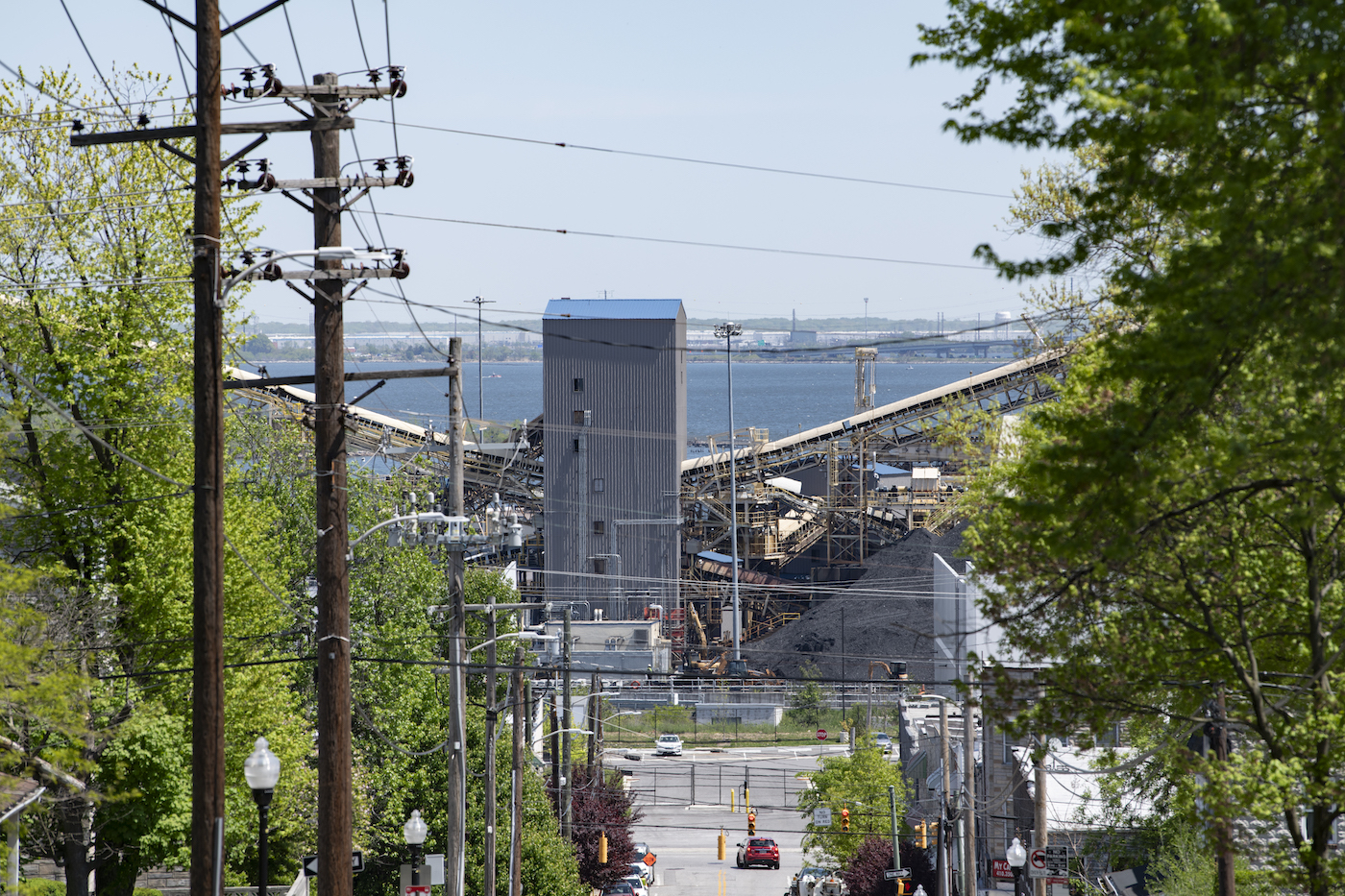Rising Concerns: Students Tackle Climate Change and Its Effects on Health in New Elective at UMB
June 05, 2024 Emily Bleiweis
Read about the course, including a final project on the Curtis Bay neighborhood and the environmental and health impact from the CSX coal terminal nearby, in the latest issue of “CATALYST” magazine.
Photo: Some students in the elective are completing their final project on the Curtis Bay neighborhood in Baltimore and the environmental and health impact from the CSX coal terminal nearby. Photo by Matthew D'Agostino
For some, climate change may seem like a far-off problem — a can that can be kicked down the road, something that is not impacting the average person in their day-to-day life.
But Shiladitya DasSarma, PhD, a professor in the Department of Microbiology and Immunology at the University of Maryland School of Medicine, knows that’s not true.
“Climate change is the defining issue of our time,” DasSarma, course director of the University of Maryland, Baltimore’s (UMB) new “Climate Change, Health, and Society” elective, said, adding, “Climate change is here. And for a long time, it used to be in the future. But as of the last few years, I think everyone can see it.”
Just look at the wildfire smoke in summer 2023 that originated in Canada but polluted air up and down the East Coast of the United States, said DasSarma, also a professor with the Institute of Marine and Environmental Technology in the University System of Maryland (USM).
“Especially in the last 10 to 15 years, it’s pretty clear that our environment is changing,” he said. “And unlike many of the problems in the past that we’ve dealt with … those came to an end or will come to an end soon. The distinction with climate change is that it’s just going to get worse.”
Through an interdisciplinary approach, students, faculty, and staff at UMB are taking part in the pilot elective this spring taught by 10 UMB faculty to collaborate on what they hope will be lasting change in Baltimore and beyond. The course aims to educate professional students on the physical science of the changing climate and expand upon that with the implications for human health and societies. The overarching goal of the course is to equip students with the knowledge to apply this information to their professional practice and to advocate for better laws and policies to help communities mitigate and adapt to climate change.
The course is open to students in the schools of law, medicine, nursing, and social work, as well as the Marine-Estuarine Environmental Sciences Graduate Program (MEES) — a USM program. This first class has 12 students who are from law, medicine, and MEES.
A Personal Connection
Garrett Posey, a second-year student at the University of Maryland Francis King Carey School of Law, hopes to go into housing law and work in legal services to help people who are unable to afford a lawyer otherwise.
On the surface, Posey said, it may not seem like housing law ties into climate change work. But he’s personally seen how tragedies that have occurred due to erratic weather patterns can directly impact someone’s home and life. In the last decade, Ellicott City’s Main Street had disastrous flooding that swept cars, front steps, and even humans away. Posey’s sister, although not physically injured, was directly impacted by one of the floods.
“One of the things that really helped me connect my own passion to the subject of this class [is] because it’s a class [that’s] really geared toward how we can fix a problem in Maryland that relates to climate change,” he said, adding his sister was not at home at the time of the 2018 flood but lived on the second floor of a house whose first floor was destroyed.
It’s events like this that hit close to home that deeply connected him to this type of class.
“A lot of people tend to get very depressed — very understandably — about climate change,” Posey said. About halfway through the course, students were asked how they were feeling about it all. “I feel betrayed more than anything else. And that’s really a call to action for me.”
Read more about the “Climate Change, Health, and Society” elective in the latest issue of CATALYST.
You can read the Spring 2024 issue of CATALYST magazine, which highlights innovations such as the School of Dentistry's Division of Artificial Intelligence Research; Carin Cardella, public information officer for UMB Police and Public Safety who has answered the call during state emergencies; the Francis King Carey School of Law celebrating 200 years; new Health Sciences and Human Services Library Dean Emily Hurst and Chief Philanthropy Officer Greg Bowden; Fahren Nipple, autopsy assistant for the Office of the Chief Medical Examiner and assistant program director for the Master of Science in Forensic Medicine at the Graduate School; and much, much more!